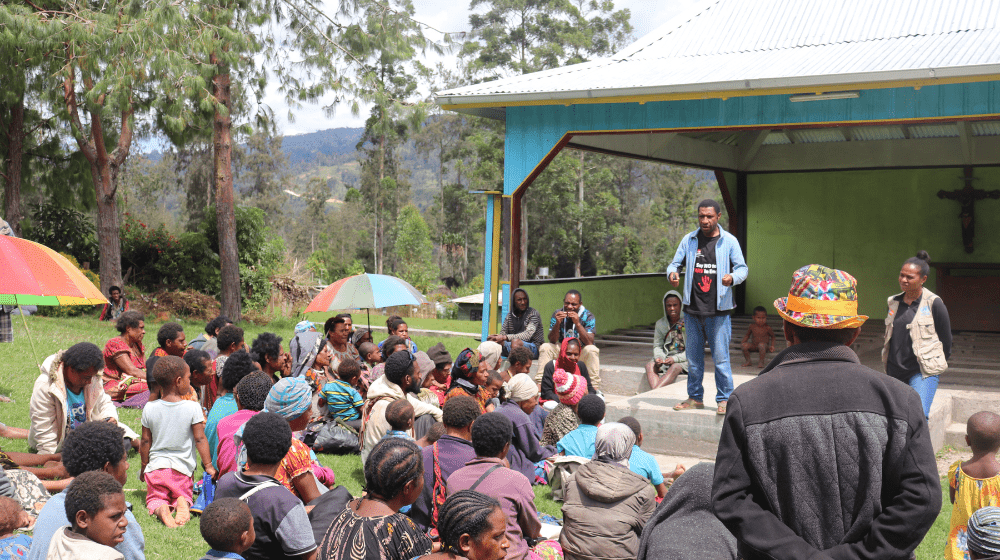Human Dignity. Human Life. Equality.
These three phrases were echoed to human rights defenders, community leaders, and church leaders over a two-day intensive workshop in Wabag, Enga Province, emphasizing the centrality of human rights in addressing the ongoing impacts of election-related violence in the province, including sorcery accusation-related violence.
This advocacy workshop was made possible through the partnership of the United Nations Population Fund Country Office and the Catholic Diocese of Wabag, with the support of the United States Agency for International Development (USAID). Advocates discussed how best to identify and assist women and girls who have been displaced and raise awareness on gender-based violence, sexual and reproductive health and rights, and sorcery accusation-related violence in Porgera, Laiagam and Kompiam-Ambum districts.
Women and girls displaced by violence in these areas have been seeking refuge in nearby communities.
“Women and girls are more at risk of facing GBV and SARV when they are displaced and seek refuge in other villages,” said Dickson Tanda, Program Coordinator for Caritas at the Catholic Diocese of Wabag. “It is our job as advocates to protect the dignity of these women and this can only be done through proper awareness and educating our communities of the real issues that lie in our communities like sickness, malnutrition, unhealthy livelihoods, and other issues.”
Catholic Diocese of Wabag Bishop Arnold Orowae thanked UNFPA for the partnership and acknowledged the work of the Diocese in combating GBV and SARV.
“We are happy to have UNFPA facilitating this training because this fight against GBV and SARV is something the Catholic church in the province has been dealing with and trying to stop,” Bishop Orowae said.
“We want to protect and promote life, peace, and harmony within our families and communities.”
Reflecting on the challenge of ending SARV in Enga Province, Dickson Tanda stressed the importance of identifying where the idea of sorcery or “sanguma” comes from in order to understand it, and fight against it. Mr Tanda shared that this fight must focus on prevention.
“We have two avenues when it comes to GBV and SARV; Prevention and Response. We want as much as possible to prevent GBV and SARV from happening in our districts, rather than responding to it when the damage has already been done.”
These advocates will now work with communities across the three districts affected by election-related violence and raise awareness on GBV & SARV, with the aim of creating safe spaces for women and girls to seek shelter without the fear of abuse or accusations.
UNFPA and USAID Humanitarian Support
UNFPA and our partners recognize that the physical and mental health needs of communities affected by humanitarian events demand long-term support and that women and girls displaced by such events remain vulnerable to GBV and SARV.
This training is part of UNFPA’s support to communities affected by election-related violence in Enga Province. With generous support from USAID, UNFPA is working in partnership with the Catholic Diocese of Wabag, Enga Provincial Health Authority, and PNG Family Health Association to deliver dignity kits, reproductive health kits, clinical training, mental health and psychosocial support training, and GBV and SARV awareness and prevention activities in communities affected by election-related violence.


